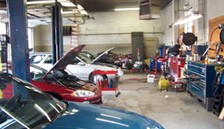The crash repair industry is renowned for being a bit of a legal minefield. Graham Threlfall, head of bodyshop services at Remit Resourcing, provides some welcome guidance.
Remit is the commercial arm of the Retail Motor Industry Federation (RMI) focusing on training, recruitment and consultancy.
The first subject Threlfall tackles is the rights of the customer.
In the UK the norm is to contact the insurers first who will direct the policyholder to their approved repairer.
“However, consumers can choose to use their own repairer – insurer contracts will allow this, although they have various approaches to it.
“Often the lure of a courtesy car, quick authorisation and some careful words from a claims handler are sufficient to sway the policyholder, especially at a time when they are in some distress.
"Many consumers decide to take the line of least resistance.”
But some insurers are now introducing a new measure to dissuade policyholders from using another repairer – the use of a non-approved repairer excess.
This is an extra fee payable if the policyholder chooses their own repairer.
“Faced with an excess of perhaps a few hundred pounds this financial pressure can be enough to persuade even the most loyal customer.
“Worryingly, while it is legal and written in the policy summary, there have been occasions when this excess has come as a surprise.
“We have collated feedback from both bodyshops and their customers that it was financial pressure that resulted in the vehicle being taken to the insurer’s choice of repairer.
“Will these policyholders renew again next year? I guess this relies on the service provided.”
Health and Safety legislation
Away from consumer rights, Threlfall emphasises that Health and Safety legislation has far reaching implications for the body repair industry.
“We provide health and safety support to many motor trade businesses and we constantly find that it is a real struggle for them to keep up-to-date with the latest legislation,” he says.
“With day-to-day customer demands, staff issues and general business pressures, maintaining compliance is not high on the agenda for some.
“Yet within our litigious society we see so many personal injury claims or examples of businesses facing fines.”
And he said that in many cases these could have been avoided by implementing some basic practices – simple housekeeping, clearing up spillages, tidying away tools and wearing the appropriate protective equipment.
Some dealers are now finding that outsourcing health and safety management is a good option.
Last year the Government conducted a review of the current health and safety laws in the light of the growing compensation culture.
While there were no radical reforms, Lord Young’s report did highlight some intent to deregulate areas of health and safety.
“This probably raises a cheer from some, but it misses the point that most of the current H&S legislation is actually quite straightforward.
Perhaps some education on how the legislation is interpreted may be beneficial.”
Training needs
In terms of training, Remit offers a comprehensive range of technical and non-technical courses.
Over the past few years, with the introduction of standards such as PAS125 and an increase in bodyshops with VM approvals, Remit has seen a positive trend of investing in training.
The main demand was for technical training with a measured outcome – Automotive Technician Accreditation (ATA) or National Vocational Qualification (NVQ) – which allows a bodyshop to demonstrate that it has competent staff in the core repair disciplines of vehicle damage assessing (VDA), strip/fit (MET) and panel and paint.
Accurate estimating, or VDA as it is now known, is critical to a bodyshop’s success, and it is progressing at a rapid rate.
The VDA is the hub around which a bodyshop operates. If the estimate is wrong the bottom line of the business is affected.
The VDA has to be able to identify the extent of the damage, consider the most cost effective, but safest, repair method, negotiate with the work provider, liaise with customers, ensure the technicians understand the repair methodology and ensure the estimate covers every part or panel damaged.
“Initially when the ATA VDA qualification was introduced the low pass-first-time rate highlighted a skills gap. A few years on we are seeing these skills improve as more bodyshops have realised their importance,” Threlfall said.
Vehicles are now much more complex with multiple types of steels, aluminium and composites, so training has to be an important part of any bodyshop strategy.
The more proactive bodyshops also ensure they support non-technical staff with customer service, management and financial training. They see this as ‘future proofing’ their business.”
Block Exemption
On the impact of Block Exemption, Threlfall said it had ensured manufacturers had to make technical information available to anyone who has a legitimate need.
“We have a right to access it in a usable form and at a reasonable cost – the same cost charged to anyone within the vehicle agent’s network.
“A good example is the security codes related to the anti-theft elements of vehicle systems. Once straightforward jobs, such as removing a door handle, might now involve resetting the onboard systems,” he said.














Login to comment
Comments
No comments have been made yet.